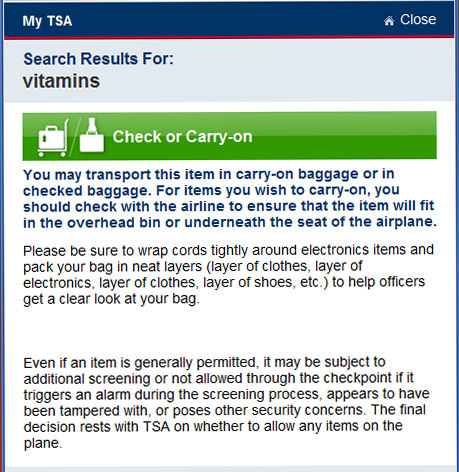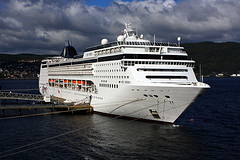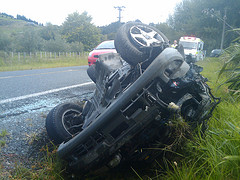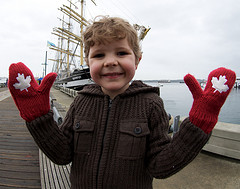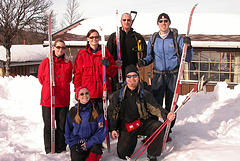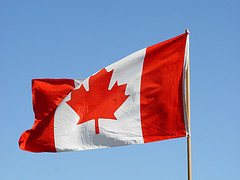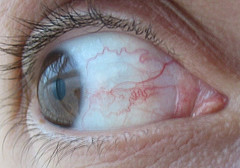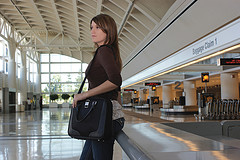 America is a very mobile society – we move ourselves, our families, and our stuff around the country for jobs all the time. In our current economic recession, you may be traveling to interview for a job in another state may wonder if they need travel insurance to cover their job interview trips.
America is a very mobile society – we move ourselves, our families, and our stuff around the country for jobs all the time. In our current economic recession, you may be traveling to interview for a job in another state may wonder if they need travel insurance to cover their job interview trips.
We wondered too.
So, we did a little research into what could go wrong on a job interview trip to help travelers decide whether travel insurance is useful or not.
Do I need Travel Health Insurance on a job interview trip?
If you are coming to the U.S. for an interview and are not a citizen, this is non negotiable. You’ll need travel health protection. If you are traveling inside the U.S. and currently have a health insurance policy, you may feel comfortable with leaving medical coverage out of your trip insurance plan. Then again, if you’re interviewing for a job in a mountain town where you plan to squeeze in a little skiing on your visit, you may want to reconsider. Remember that when you are traveling outside your network, you pay out-of-network costs versus the cheaper in-network costs. If you get injured or become ill on your trip, a little travel health coverage might be a good idea.
See our post on insuring a ski trip for additional information.
Do I need Cancellation or Trip Interruption protection on a job interview trip?
That depends on whether you are forking over the cash for the airline tickets, hotel, and more or not. If they’re picking up the tab, then the worst that can happen is that you have some extra time to spend in a new area. If you are anxious to get back home, call the airline to see if you can go stand-by on an earlier flight.
If you are paying for the trip, then cancellation and interruption protection depends on your circumstances. If your kid gets very ill while you are on the trip and you want to go home early, trip interruption protection will help you get home earlier. If the potential employer cancels your interview before you leave, you’ll need ‘cancel for any reason’ protection added to your policy to be reimbursed for your non refundable costs because travel insurance doesn’t include a covered reason for job interview cancellations.
Do I need Travel Delay coverage on a job interview trip?
This one is tough because you are traveling to be there at a particular appointment time and you want to be prompt of course. Travel insurance isn’t going to reimburse you for missing your interview time slot, but at the same time, if you are stuck in Chicago on your way to California and a snow storm locks down all flights, you are now looking at footing the bill for hotel, meals, and more until the airport opens up. Check your flights to see where you could get stuck and consider travel delay coverage if you might be.
Do I need Baggage coverage on a job interview trip?
Again, this depends on whether you will be carrying much on your trip. Remember that travel insurance baggage protection protects your luggage and personal effects even outside the airport and bags can be stolen just about anywhere. (from hotel desks, from taxis, etc.). Of course, all baggage protection comes with limits: per-item limits, and maximum limits. Our best advice is to pack light, don’t put anything you need for your interview into your checked luggage, and keep your valuable stuff on your person.
Do I need Car Rental Collision coverage on a job interview trip?
In most cases, travelers get the same level of car rental protection from their credit cards as they do from a travel insurance plan. In addition, some car owners have automobile insurance that protects their rental cars as well, but the terms and conditions are the key. Car rental collision coverage with a travel insurance plan or a credit card travel protection plan does not protect the driver from personal liability. The coverage you pick up at the rental car counter, however, does not protect the driver from “loss of use” charges imposed when the vehicle is damaged and in the shop. No rental coverage protects you from loss or theft of personal items inside the vehicle.
If you are paying for the car you are renting on your job interview trip, check with your credit card to see what protection is available there first (because it’s an extra cost if you buy it with your travel insurance).


